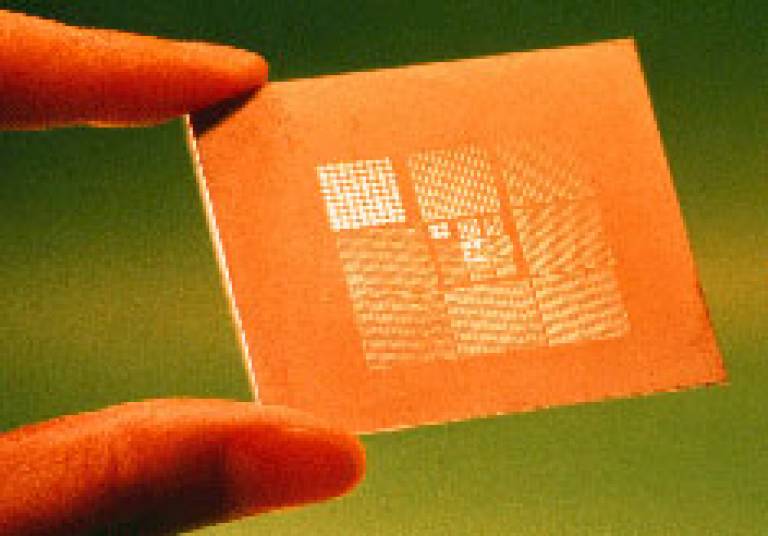London Centre for Nanotechnology launch heralds new era for UK technology
15 March 2003
Construction of The London Centre for Nanotechnology commenced in February 2003.
 A joint venture between UCL and Imperial College, it will open its doors
in Spring 2004, bringing together world-class infrastructure and leading interdisciplinary
research.
A joint venture between UCL and Imperial College, it will open its doors
in Spring 2004, bringing together world-class infrastructure and leading interdisciplinary
research.
Based at 17-19 Gordon Street, in UCL's Bloomsbury Campus, a new award-winning
building will house eight floors of state-of-the-art facilities for researchers
to conduct innovative research into nanotechnology applications. Academics from
a range of fields, including electrical engineering, physics, chemistry, biology
and medicine, will be represented.
Aiming to become one of the world's leading nanotechnology centres, it is ideally located near biomedical activity in UCL's Bloomsbury Campus, as well as the new University College Hospital, in order to maximise interdisciplinary activities and applications.
Commercial links and 'spin-out' opportunities capitalising on the intellectual property generated by the centre will be paramount. Excellent access to corporate partners and venture capitalists will be provided by its unique location in a city centre.
Professor Gabriel Aeppli, the centre's director, said: "Global activity in nanotechnology is growing rapidly, driven by strong interest and investment from the commercial and public worlds, which have seen short term returns across a range of areas. US universities are investing very heavily in this area, as are The Netherlands and other countries with strong technical bases. In terms of nanotechnology investment, the UK is catching up."
Nanotechnology involves creating novel structures with unique properties by manipulating atoms and molecules. It requires a detailed understanding of a range of disciplines, with work taking place at the scale of one billionth of a metre. Focusing on areas such as fabrication research, theory and modelling, novel electronics and nanobiology, the centre intends to produce new materials, devices and systems that meet the ever-expanding needs of the medical, engineering, scientific and commercial fields.
Products could range from real-time high-resolution clinical-diagnostic techniques, to the manufacture of sensors that test the results of a million different chemical reactions simultaneously.
Professor Aeppli said: "By combining outstanding research and the complimentary expertise of UCL and Imperial College, the centre will soon reach the critical mass necessary to compete with the best facilities abroad. By acting as a bridge between the biomedical, physical, chemical and engineering sciences, the centre will cross the 'chip-to-cell interface'. This is an essential step for the UK to remain internationally competitive in biotechnology."
To find out more about the centre use the link below.
 Close
Close

